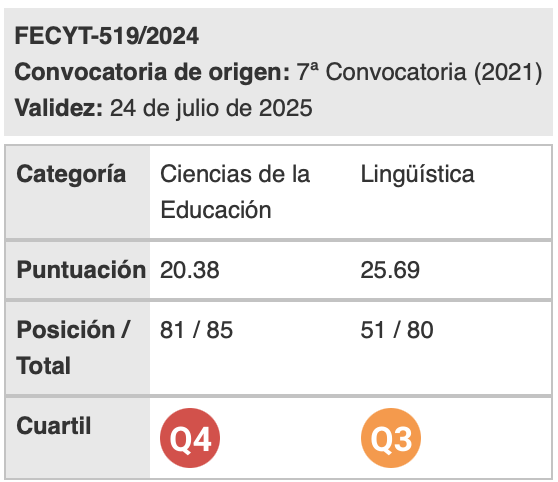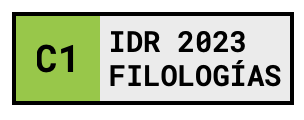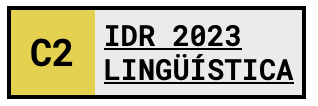Introduction: A focus on foreign language learners' success
Keywords:
linguistics, applied linguistics, language teaching, pedagogyAbstract
The more and more prominent role of English in the Spanish Education system has brought to the foreground the relevance of research in the teaching and learning of English as a foreign language (FL). At no other time in the history of Spanish education have teachers of English been so knowledgeable about pedagogy, learning theories and curriculum planning or had so many resources at their disposal. Yet, and despite considerable progress made over the years, students rarely achieve high levels of proficiency in English at the end of a course of study. Why?
This monograph alone does not intend to answer the question. Neither does it aspire to cover the entire range of variables that directly or indirectly have an impact on FL teaching and learning. The purpose of this monograph is to be the first of a series which provides state-of-the-art overviews of what is already known and of what requires further study in a wide range of fields to which foreign language teaching and learning can be applied. To this end, the papers published within this volume cover the research domains of Information and Communication Technology –in connection with students’ perceptions–, Content and Language Integrated Learning –in relation with students’ anxiety levels and attitudes–, needs analysis, interlanguage and textbooks and the intercultural communicative competence. The evidence provided by the five selected papers about the situation in Spanish institutions will map out the current interdisciplinary findings on a specific common problem facing educationalists: how to promote better English learning. Two features make the volume especially appealing: the presence of all levels of education and the incorporation of an often neglected group of learners: adult learners of English in the Escuela Oficial de Idiomas (Official Language School).
DOI: 10.20420/rlfe.2015.0001
Downloads
References
Han, Z. and Tarone, E. (Eds.) (2014). Interlanguage. Forty years later. Language Learning & Language Teaching, 39. Amsterdam, The Netherlands: John Benjamins Publishing Company. DOI: 10.1075/lllt.39.
Lasagabaster, D. and Sierra, J. M. (2011). Classroom observation: desirable conditions established by teachers. European Journal of Teacher Education 34(4), 449-463. DOI:10.1080/02619768.2011.587113
Lee, K. (2009). Treating culture: What 11 high school EFL conversation textbooks in South Korea do. English Teaching: Practice and Critique, 8(1), 76-96.
Lightbown and Spada (2006) (3rd ed). How Languages are Learned. Oxford: Oxford University Press.
Paige, R., Jorstad, J., Paulson, L., Klein, F., y Colby, J. (1999). Culture learning in language education: A review of the literature. En R. Paige, D. Lange, y Y.Yershova (Eds.), Culture as the core: Integrating culture into the language curriculum. Minneapolis, MN: The Center for Advanced Research on Language Acquisition, University of Minnesota.
Selinker, L. (1972). Interlanguage. International Review of Applied Linguistics in Language Teaching 10(1-4), 209-232.
Tomalin, B. (2008). Making culture happen in the English language classroom. Teaching English. BBC Britsh Council. (Available at https://www.teachingenglish.org.uk/article/ making-culture-happen-english-language-classroom. Accessed 26th June 2015).
Downloads
Published
How to Cite
Issue
Section
License
Authors who publish with this journal agree to the following terms:
- Authors retain copyright and grant the journal right of first publication with the work simultaneously licensed under a Creative Commons Attribution License that allows others to share the work with an acknowledgement of the work's authorship and initial publication in this journal.
- Authors are able to enter into separate, additional contractual arrangements for the non-exclusive distribution of the journal's published version of the work (e.g., post it to an institutional repository or publish it in a book), with an acknowledgement of its initial publication in this journal.
- Authors are permitted and encouraged to post their work online (e.g., in institutional repositories or on their website) prior to and during the submission process, as it can lead to productive exchanges, as well as earlier and greater citation of published work (See The Effect of Open Access).

Revista de Lenguas para fines específicos is licensed under a Creative Commons Reconocimiento-NoComercial-SinObraDerivada 4.0 Internacional License.
























